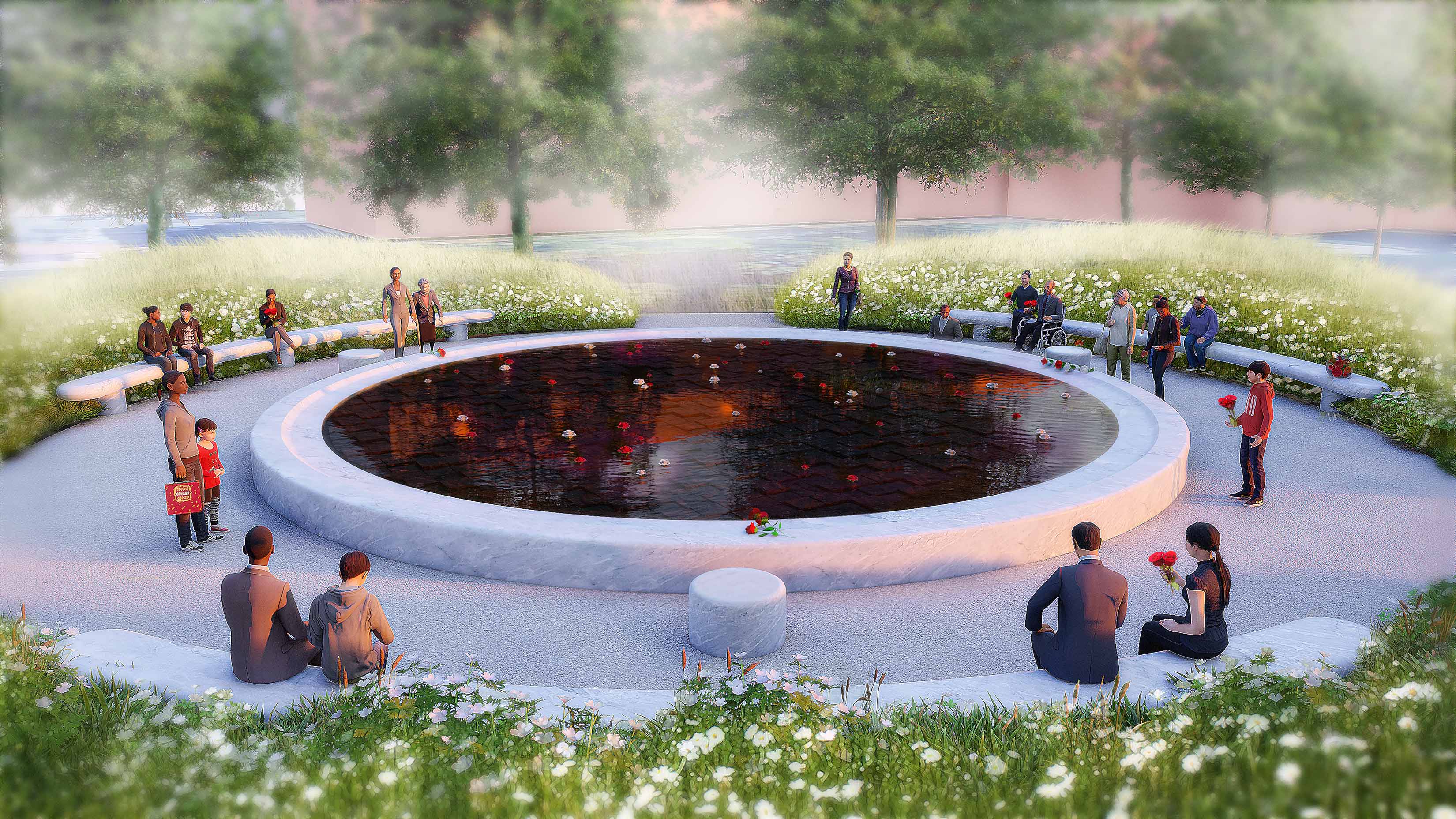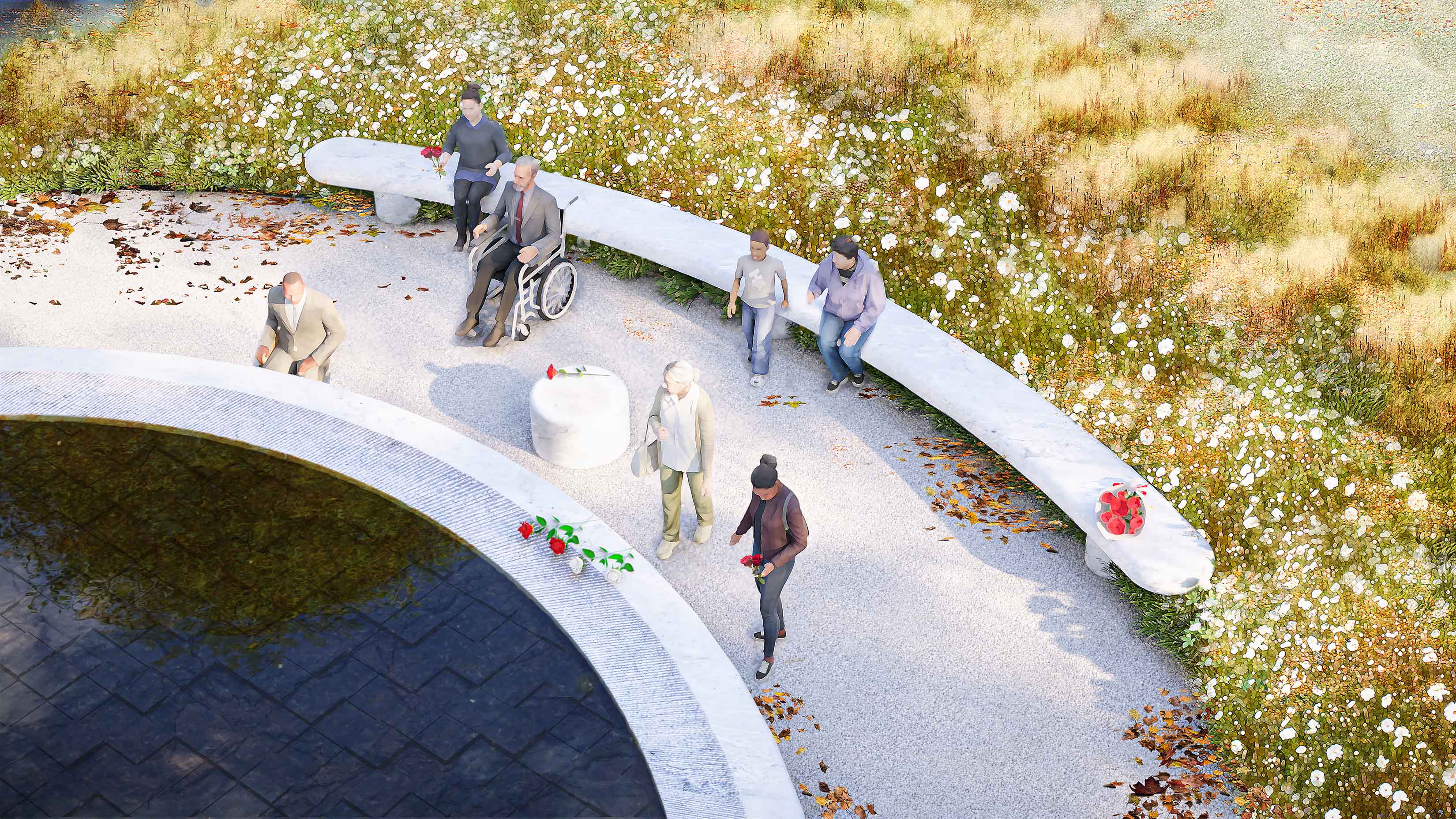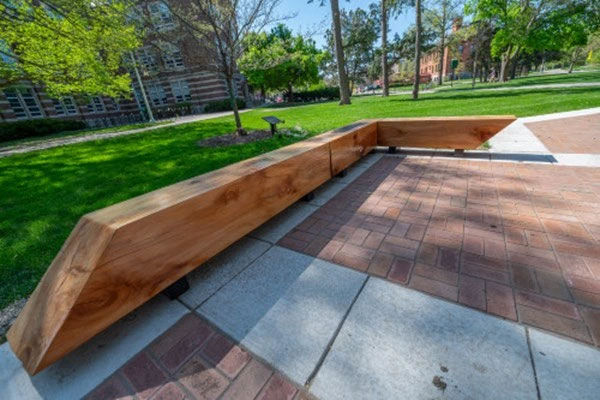There are several initiatives underway to memorialize, honor and remember those we lost and those affected by the Feb. 13, 2023, tragedy. As part of that process, MSU’s Office for Resource Support and Coordination remains in contact with those families most directly impacted to gather input and feedback.
Feb. 13 Permanent Memorial Planning Committee
The committee, made up of students, faculty, staff and community liaisons, has been actively meeting and involving the MSU community and our connected communities in gathering input for the creation of a lasting memorial on campus. MSU’s National Charrette Institute supported and facilitated the community engagement process. Additionally, the Office for Resource and Support Coordination has held private conversations with those most directly impacted by the violence.
The process
After engaging the campus community in early 2024 to identify the most important purposes of the memorial as well as potential modes of interaction and location, an RFP was distributed to artists and organizations across the country to design, build and install a permanent memorial on campus.
The Feb. 13 Permanent Memorial Planning Committee selected three finalists and solicited feedback on their proposals via a community survey that closed March 31. The results of the survey are available here. After careful review and feedback from the committee, MSU community and conversations with directly impacted groups, the university is moving forward with the proposal from Carlos Portillo and Jessica Guinto, which includes a memorial fountain, benches and surrounding plantings in the Old Horticultural Garden near the Student Services Building.



For a video presentation about this proposal, please click here.
The following narrative was provided by the artist:
This proposal honors the victims of the February 13, 2023 tragedy at Michigan State University campus and provides a place of reflection and memorial for the wider campus community. The project builds off an existing water feature located in the Old Horticultural Garden, repurposing the existing infrastructure and reimagining the space as a new permanent monument while simultaneously creating a communal space that fosters healing, honors, and respects the process of grieving and remembrance.
Walking along a linear path through an allee of crabapple trees, the memorial is hidden behind a mound of planting. As one approaches from the path, a clearing through the mound reveals a circular path framed with benches encircling an inner pond.
The heart of the design is a round, reflective pond clad in black, roughly-cut granite stone. The darkness of the black basin creates a reflective effect, mirroring the surrounding campus in its waters. The carefully chosen stone has flecks of sparkling aggregate that reflect shimmers of light, providing visual interest even when the pond is dry. The water feature is warmed slightly above freezing, allowing it to run year-round in the cold winter climate, distinguishing it as something special and unique on campus. Tranquil reflections and soothing sounds from the water create a serene, delicate, and calm environment for visitors.
Contrasting the black reflective pond is a border of smooth, polished white marble with a rough inner rim edge. The subtle elegance of the white border creates a formal yet calming atmosphere, contrasting and enhancing the darkness of the pool. A simple, circular path surrounds the water feature and is embedded with three polished pediment stones symbolizing the victims lost. The pediments offer a repository for placing flowers and other mementos for those grieving. Framing the path, three polished marble benches offer a place for people to sit, collect their thoughts, and gather for mourning.
Three gently sloping mounds embrace the memorial, giving it a sense of intimacy, tranquility, and isolation from the surrounding campus. A plant palette of uncut grasses, shrubs, and seasonal perennial flowers creates texture and complexity, distinguishing the site from the manicured lawns surrounding it. Spontaneous patches of highly ornamental white flowers bloom throughout spring, summer, and fall, providing a seasonally changing landscape of floral offerings for people to pluck and place on the memorial. As winter comes and plants lose their leaves, the memorial retains visual interest with textured, colorful plantings that retain winter interest until early spring bulbs emerge from the mounds in tandem with the anniversary of the tragedy. Through these early blooms, cutting through dead winter chaff, we are reminded of hope, healing, and the cyclical nature of memory.
Artist biography
Carlos Portillo
Carlos is a Mexican-born, multidisciplinary designer whose interests are rooted in urban design, architecture, and landscape architecture. He holds a Bachelor of Architecture Studies from Carleton University and a Master of Landscape Architecture from the University of Toronto. In 2023, Carlos's large-scale public art installation, "The Gateway," was selected from a nationwide public art competition to create a temporary winter installation for The Bentway Conservancy.
Carlos's artistic practice has been influenced by his background in architecture and landscape architecture. As such, he is interested in creating artworks or installations that are site-specific and that are able to shape, change, and enhance the settings in which they are located.
As a first-generation immigrant, he believes in representation by engaging diverse voices in the design process and crafting environments that reflect and celebrate the rich variety of the communities they serve.
Jessica Guinto
Jessica is a landscape designer based in New York City. She holds a Master of Landscape Architecture degree from the University of Toronto.
As a designer, Jessica is dedicated to creating accessible spaces by incorporating universal design principles that ensure inclusivity for individuals of all abilities and backgrounds. Her landscape architecture work is focused on sustainability and fostering long-term resilience.
Next steps
Below is a general timeline of next steps:
- Fall 2025: Plans to construct the memorial will begin.
- Fall 2026: Estimated completion date (subject to change).
Memorial bench

Through the efforts of MSU Infrastructure Planning and Facilities and MSU Student Life, as well as a generous donation from the Associated Students of Michigan State University, a bench honoring the memory of students Arielle Anderson, Brian Fraser and Alexandria Verner has been installed in a plaza near Berkey Hall.
Additional funding was made possible via MSU’s Campus Beautification Fund, which supports various landscape and beautification projects across campus.
Archiving Feb. 13-related memorial objects at the MSU Museum
The MSU Museum is serving as the central repository for memorial items placed around campus following the tragedy of Feb. 13, 2023. These items include signs, letters, candles, stuffed animals and various personal mementos and ephemera, all of which will be documented and preserved.
Throughout 2024, the MSU Museum focused on cataloging and digitizing all memorial items, performing preventative conservation and ensuring proper storage.
In the near term, the collection materials will remain on restricted access and will not be available to the public. The MSU Museum and its campus partners are determining the best ways to manage this important collection in a trauma-informed manner.